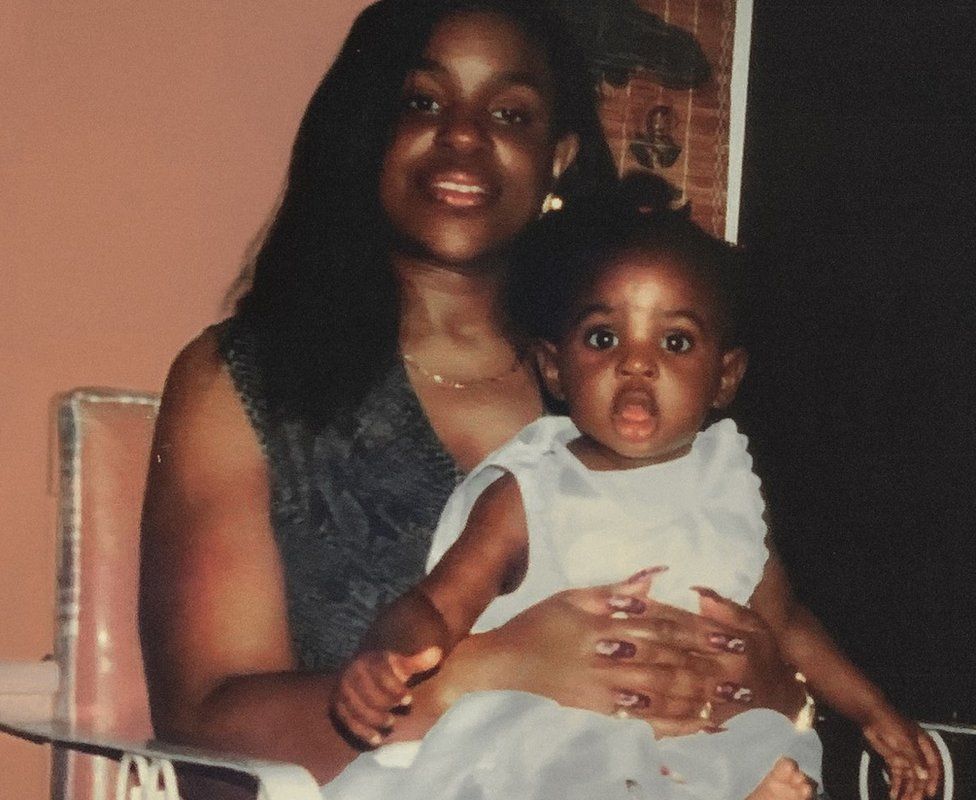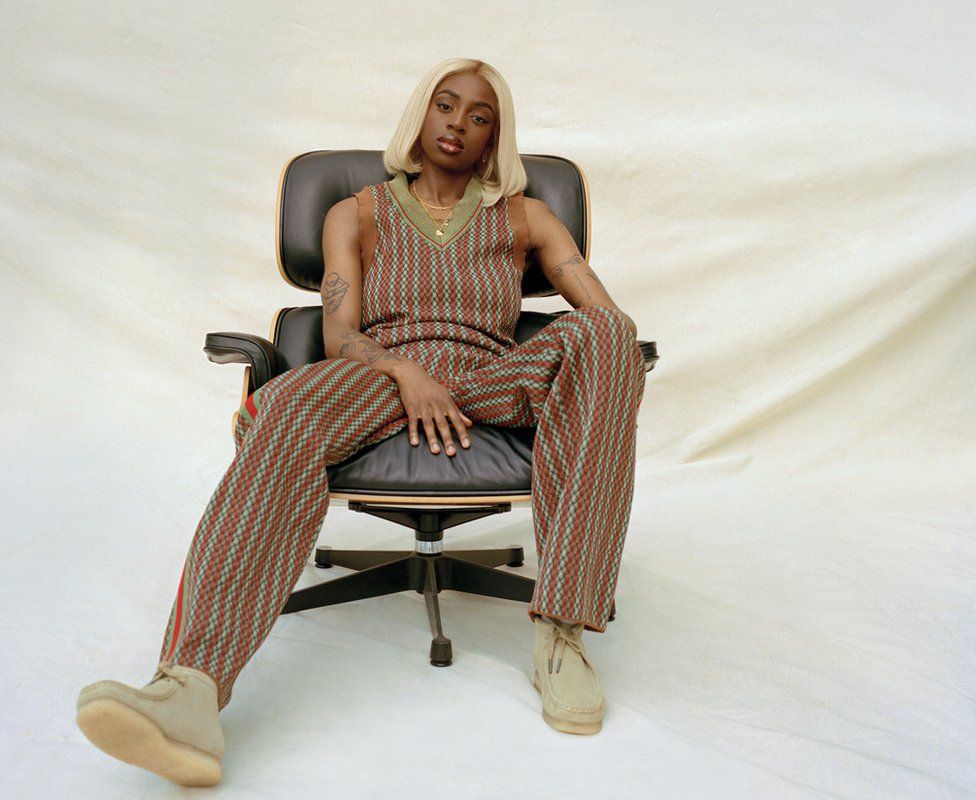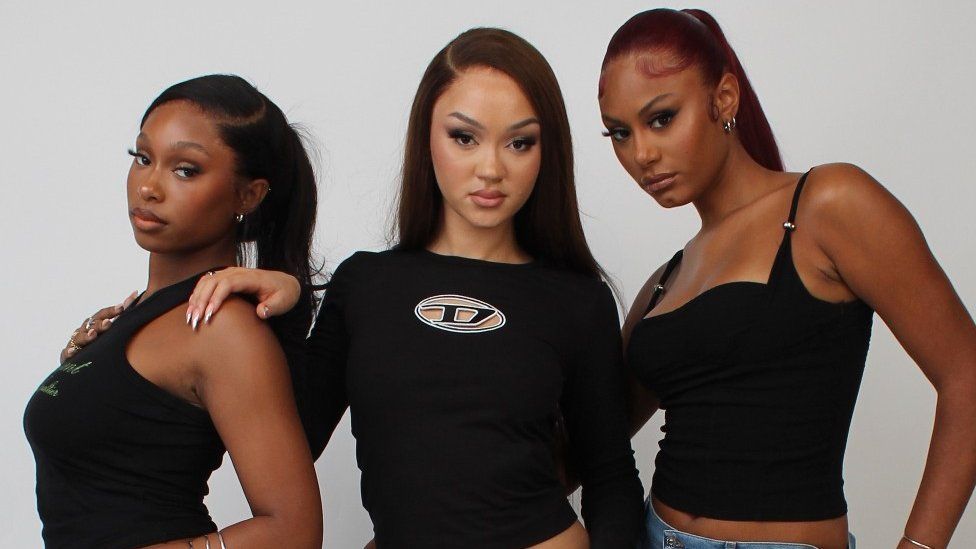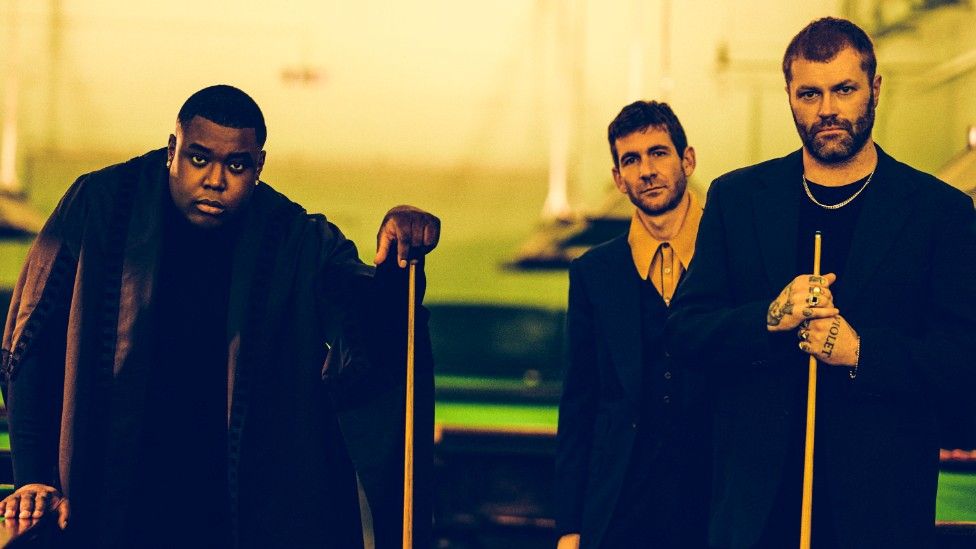Sound Of 2023: Cat Burns went from busking to a platinum record
From busking on the streets of London, to becoming a platinum-selling songwriter and supporting Ed Sheeran on his stadium tour, Cat Burns had a pretty incredible 2022.
It was all thanks to Go, a defiant break-up song she first released three years ago, but which found a second life on TikTok,
A slow-burning smash, it entered the chart at number 57 last January, gradually moving upwards until it peaked at number two in June.
By that point, Sam Smith had added a guest verse to the song and whisked 22-year-old Burns over to the US to play the song on James Corden’s The Late Late Show.
She ended the year with a nomination for the Brits Critics’ Choice award; and now she’s come fourth in BBC Radio 1’s Sound Of 2023 – which tips acts for even bigger success next year.
“I always thought Go would be the song that introduced me to people, but not in the magnitude that it has,” says the singer, who’s still coming to terms with the success.
This time last year, the track “had reached one or two million streams and I was happy with that,” she says.
“I thought it had had its time, but this year has been absolutely mental… and I’m very grateful for it all”.
But in many respects, this is where she was meant to be. Burns makes music with purpose, built on her own experiences, but designed to connect, to sustain, to heal.
“I always wanted to make pop music you can relate to,” she says. “Or to find songs that can take hard situations and make them feel lighter”.
She makes good on the promise with Free, a tender song about her decision to come out, and the dread she felt about telling her family.
“Built it up so much in my head that I let you down / If you only knew the pain I put my heart through.“
When she released it in 2021, the reaction was overwhelming.
“Loads of people shared stories about how they’d come out; and how their parents had been a bit more accepting after they showed them the song – because, with the lyrics, you feel how dramatic it is, wanting your family to accept you for who you are, but being worried that they won’t.
“I think it humanises queer people instead of dehumanising us, the way the media does sometimes.”
For their part, Burns’ own family took the news in their stride.
Her mum greeted the revelation with a simple, “OK” (followed by “a million questions” a couple of days later). Her sister wanted the gossip: “What kind of girls do you like, then?” she inquired.

Family and music have always been intertwined. Burns grew up on her mum’s record collection – falling in love with the gospel songs of Donnie McClurkin, Kim Burrell and Kirk Franklin, alongside the classic soul sounds of Stevie Wonder and Michael Jackson.
Her mum sang in choirs, and encouraged her daughter to join up, too. She remembers after-school clubs and summer camps in Wales where she’d holler the songs from Disney’s High School Musical at the top of her voice.
Music wasn’t her only talent. Burns was a promising basketball player, whose coach told her she had the potential to play professionally.
“And that was what made me realise I didn’t want to do it,” she laughs. “Because if you want to pursue it, it becomes your whole life… although I guess to an extent that happens with music, too.”
By that point, she’d started writing her own songs, orchestrating everything in her head, as she hadn’t yet learned to play an instrument.
“They were rubbish,” she laughs, but Burns had enough raw talent to win a place at the Brit School, passing her audition with a rendition of Jimi Hendrix’s All Along The Watchtower.
Many graduates are reluctant to discuss their time at the academy, fearful that its “fame academy” image undermines any semblance of cool or credibility – but Burns has no such concerns.
“The Brit School gave me the confidence to know that I can pursue a career in the arts and achieve it,” she enthuses.
“I think a lot of schools don’t spread the message at all. They’ll say it’s unrealistic, whereas Brit School is like, ‘OK, this is what you want to do? Here’s how you can go about achieving it.”

Enrolling at the age of 14, Burns found a kindred spirit in a fellow student, known mysteriously as Txm.Smrt, whose family had built him a recording studio in their garden shed.
Together they put together the songs that would form the basis of Burns’ debut EP, Adolescent, released when she was just 16 years old.
“Then I just went around the school and told people to go stream it, and I put on my own headline show at a venue called Off The Cuff. I really wanted to push myself.”
That headline show was an early highlight of her career. People she didn’t even know turned up to sing along. Success must have seemed tantalisingly close, but Burns felt the record industry didn’t know what to do with a queer, black girl who wanted to sing big, relatable pop songs in the vein of Ed Sheeran and Adele.
“I struggled a lot,” she recalls, “When I was going around to record labels and trying to pitch myself, there weren’t many black female artists that they could use as a blueprint or as proof that this music sells or works.
“And that was quite frustrating. I knew the demand was there because this is the music I’ve always loved listening to.”
After years of struggle, lockdown turned out to be her saviour. Holed up in her mother’s house, and free from record label interference, she set up a TikTok account and started honing her sound.
“It was so useful, just being able to spend time by myself and write songs. figuring out chord progressions I liked, and how stripped down I wanted my songs to be.”
“Because I’ve got ADHD, I just kind of hyper-fixated on it and posted video after video after video.”
In making those clips, she found her true voice in intimate, acoustic pop songs that unpack and soothe the anxieties of a generation.
Her song titles read like chapters of a self-help book – Anxiety, People Pleaser, Low Self-Esteem – but there’s nothing preachy or self-pitying about her lyrics. She’s simply there to be a friend – often to herself.
“I like to live with my songs,” she says. “So once I write them, especially if they’re about something personal to me, I like to sit with them for a while and use them to help me through whatever it is I’m going through.
“And then eventually, when the time is right, you have to say, ‘OK, it’s time to give this to the rest of the world – and maybe it can help other people, too”.
- 5 December 2022















